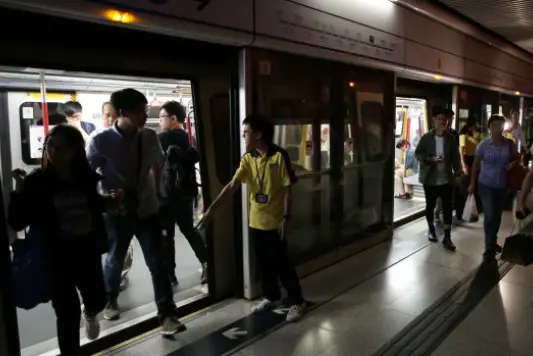Chinese industry and German industry will make their respective advantages complementary to each other through dynamic connection between "Made in China 2025" and "German Industry 4.0", according to experts and officials at a forum on the China (Guangdong) International Internet Plus Exposition in Foshan.
Mo Wei, an official with China's Ministry of Industry and Information Technology (MIIT), said at the Conference of "Made in China 2025" Meets "German Industry 4.0" last Thursday that the two industries are highly complementary, which promises a huge potential cooperation space.
The implementation of "Made in China 2025" and "German Industry 4.0" will not cast negative influence on the complementarity.
The Foshan Daily quoted Mo as saying that China is a big manufacturing country standing in the stage of Industry 2.0 or 3.0, and the Chinese industry lags behind its German counterpart in terms of not only investment in research and development but also product level.
Mo's view echoes the statement of China's industry and information technology minister Miao Wei delivered this May. Despite the common direction they share, the "Made in China 2025" and the "German Industry 4.0" are different in many aspects, including development basis, industry stage and strategic tasks, said the minister.
On one hand, the German strategy concentrates on high-end equipment, has a target to build cyber-physical systems, and plans to create intelligent plants and boost intelligent production; on the other hand, the Chinese strategy focuses on boosting the deep integration between informatization and industrialization, strives to develop intelligent manufacturing, and vows to build an industry ecosystem and a new-type manufacturing model under the circumstance of informatization.
According to Miao, Germany is a strong manufacturing country and leading exporter of manufactured goods, and it is developing from industry 3.0 to industry 4.0. That means "German Industry 4.0" targets at the new-round science and technology revolution and will help the country's industry to upgrade from manufacturing automation to informatization.
Meanwhile, Chinese enterprises have wide gaps among each other, and some of them still need to develop from industry 2.0 to industry 3.0. Miao said the "Made in China 2025" strategy is an overall planning for transforming and upgrading the manufacturing industry, which means it will upgrade the enterprises lagging behind from electrification to automation.
Thus, Miao believes the Chinese and German industries have a huge cooperation space and development potential in fields of high-end equipment manufacturing, energy-saving and environmental-protection, new energies, new energy vehicle and small- and medium-sized enterprise development, when they implement their respective strategies.
Chinese and German experts and officials agreed at the Foshan forum that the two industries have complementary advantages. Liao Ming, chairman of the Committee of Industry Reform and Enterprise Development of China Society of Economic Reform, said China needs to learn from Germany in many aspects, in a bid to move forward to the high-end manufacturing.
German officials and experts welcome the "Made in China 2025" strategy and place high hopes on the cooperation between the two industries. They said German enterprises expect to bring their informatization achievements to China.
According to them, the "Made in China 2025" strategy have many advantages, such as promoting the utilization efficiency of resources.
In fact, "Made in China 2025" will not only bring opportunities to German enterprises but also to companies from other countries and regions.
The MIIT's expert Wang Xiwen said in his new book, Demystifying Made in China 2025, that when some overseas-funded contract manufacturers, such as Foxconn, are speeding up the movement of production plants from eastern China's coastal areas to western China's inland areas, China is obtaining new comparable cost advantages following the implementation of "Made in China 2025".
He said the free trade zones make cross-border trade more convenient, which will simplify the imports of parts and the exports of products; the modern logistics system built by e-commerce giants have been extended to all provinces, cities and counties and many villages, which shorten the process of purchasing, sales and production; and the high-speed railways accelerate the flow of personnel and talents, which bring more knowledge to enterprises and save time for salespersons.
 简体中文
简体中文

